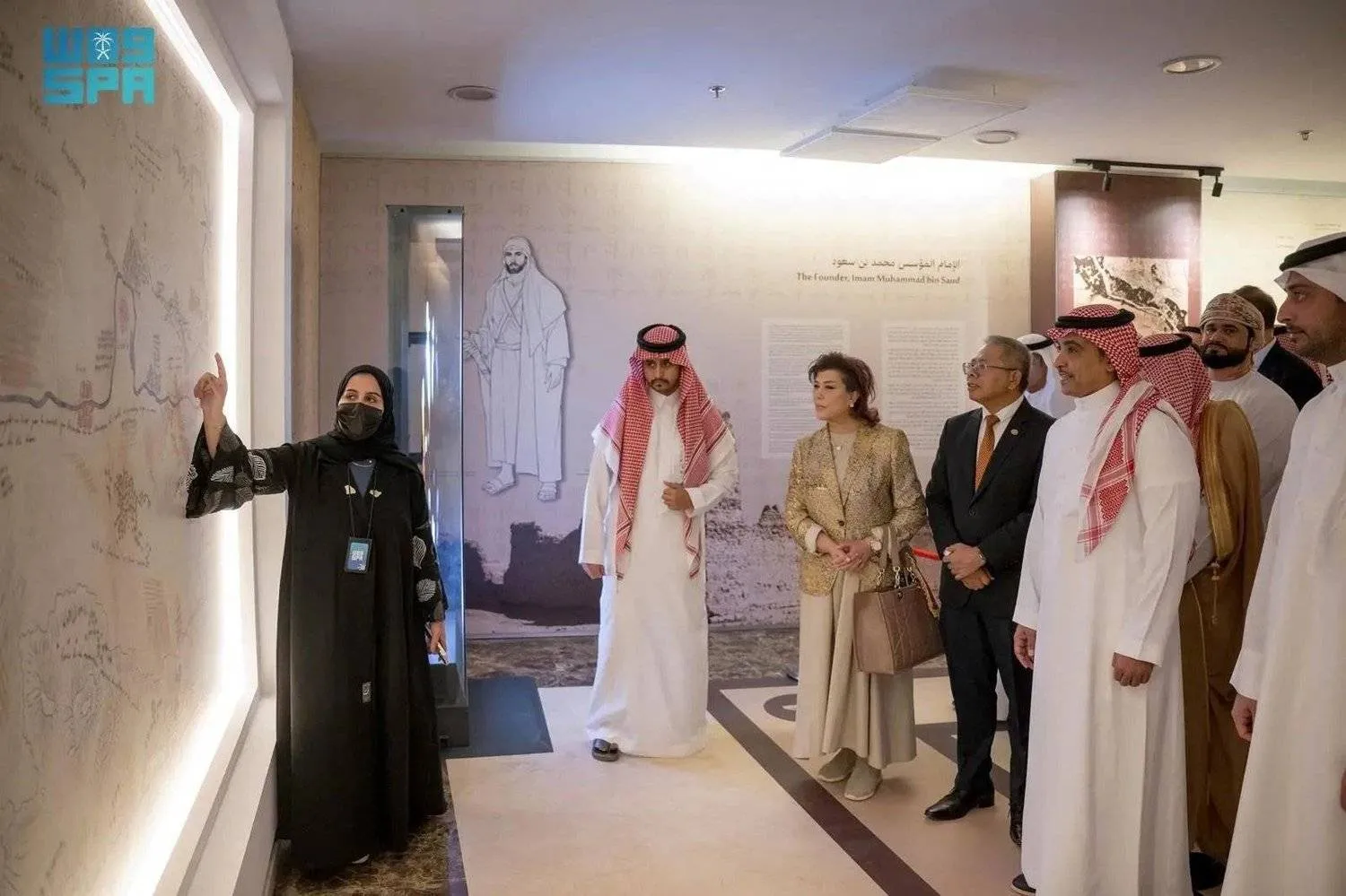The Minister of Media and Chairman of the Board of Directors of the Saudi Press Agency (SPA), Salman bin Yousef Al-Dosari, expressed the Saudi media’s pride in its national message and its responsibility to consolidate the historical depth of the Saudi state by introducing its achievements, nobility, and cultural and social heritage, and promoting its civilizational achievement and regional and global status so that the progress march continues towards a promising future for the nation and the citizens under the Saudi Vision 2030.
He made his remarks following the opening on Wednesday of “Saudi Arabia's History Exhibition” at the headquarters of SPA in Riyadh. He noted that this documentary initiative aims to enrich historical knowledge and highlights the prosperous present of the country, within a framework that reflects the image of the Kingdom on the world stage.
He added that SPA’s holding of an exhibition on Saudi Arabia's history comes in the context of its national media role and to enrich its educational and knowledgeable message through an interactive media presentation, in a new experience for visitors from inside and outside the Kingdom, applying an innovative method that establishes a relationship between the media institution and the Kingdom's history.
The minister of media reiterated that the exhibition embodies the depth of the media’s connection with Saudi Arabia's history.
Nearly a century ago, the Kingdom witnessed the publication of Umm Al-Qura newspaper in 1924, in which it documented events and the reality of the national scene in its various aspects then. The issue of September 23, 1932 announced the declaration of all parts of the Kingdom united, under the name "Kingdom of Saudi Arabia,” marking a new era of development and modernization of the media sector, the diversity of its mass-media organizations, and the breadth of its message, keeping pace with the latest technologies across various media platforms.
After his statement, the minister of media extended his thanks and appreciation to the Custodian of the Two Holy Mosques, King Salman bin Abdulaziz Al Saud, and Prince Mohammed bin Salman bin Abdulaziz, Crown Prince and Prime Minister, for their support to Saudi media, and their continued interest in developing it, to enhance its role in highlighting the Kingdom's movement, under the goals of Saudi Vision 2030.









